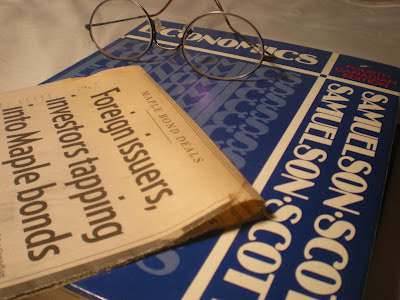Eventually everything goes to rot as long as bacteria is provided with food, moisture, heat and time. For instance, take the delicious seafood fettucini that you forgot in a plastic container on the kitchen counter before leaving for a 3-week summer vacation.
Fettucini (Italian for "little ribbons") is one of the 310 specific forms of Italian pasta. To complicate matters there are 1300 different names to describe these different kinds of unleavened dough. Pasta can be served with a sauce, in soup or baked. Seafood include fish, mollusks and crustaceans.
Upon your return, it is most likely that decomposition would be so well underway that the cover of the container would have popped open from the decaying gases and that a foul odour would be pervading your once sweet-smelling apartment.
From time immemorial, civilization has unsparingly devoted energy and creativity to food preservation. Salting, drying, pickling are all processes developed to keep foodstuffs edible. Comes a time however when you get tired of eating dried meat, pickled herring and catching gout from eating too much cured venison.
Fortunately someone discovered cooling and freezing.
About 1700 years B.C. in the Middle East, bell-shaped buildings started to appear. With thick walls and insulating materials (such as sawdust or straw) these buildings allowed the preservation of snow and ice throughout spring and summer.
In the United States and Canada specially insulated buildings were built, usually near lakes, to store ice as household supplies until the middle of the 20th century. When electricity made its way into houses and refrigerators became common appliances, this industry became obsolete.
Today refrigerators are taken for granted. I am even told that some ladies will measure the quality of a suitor according to the cleanliness and content of their fridge. Gentlemen, please take heed and do not forget to also clean your bathroom and change the sheets in the bed.
It only takes a few weeks for rotting food to attempt to emerge from a plastic container forgotten on a kitchen counter. I wonder however how long it would take for provisions to open the door of a refrigerator in which they were left to decay.
It seems to me this would be the kind of experiment Antoine Lavoisier, the father of modern chemistry, would have enjoyed, he who once said: “In nature nothing is created, nothing is lost, everything changes.”
Antoine Lavoisier (1743-1794) with his wife Marie-Anne explaining to him why it is important to keep a refrigerator clean. Mr. Lavoisier, was a chemist but also a tax collector, an unpopular trade that probably caused him to be guillotined during the French Revolution.
A few weeks ago, I invited a few friends for dinner. I was to serve the seafood fettucini that I referred to earlier. However, because I had to go away for two days before the dinner date, I purchased the scallops, shrimps, crab and other ingredients in advance and placed them in the back of the fridge.
I came back Friday night, the day before the dinner. There was a strange smell in the apartment but it was late, I was exhausted so I postponed an investigation until the next day.
Saturday morning, I was awakened by a stench. Feeling sick, I wondered where the foul odour was coming from. While making coffee, I opened the refrigerator door to get milk and I was assaulted by the bacteriological process that had been underway for two days, starting when the appliance’s compressor failed.
Antoine Lavoisier could probably tell you that a refrigerator transforms heat into cold through a compressor that overheats a cooling liquid, turning it into gas that cools off going through a coil while becoming liquid once again.
The compressor failure raised the temperature inside the fridge to over 100 degrees Fahrenheit: a perfect environment for bacteria proliferation.
Refraining from throwing up, I emptied the content of the refrigerator into plastic bags that I carried outside to the shed where I keep my garbage until pick-up day. Then I called my guests to explain what happened and rescheduled the dinner invitation. I spent the rest of the day shopping for a refrigerator.
During the night, I was suddenly awakened by loud crashing sounds outside. I quickly dressed and went down to see what was happening.
A black bear, attracted by the smell of spoilage, was having a feast in my garbage. When it saw me, it cocked its head, surprised by the interruption, then went back to its banquet, totally ignoring me.
I did not know what to do when a bear strays onto one’s property. Should I call the Wildlife Service? At 3:00 a.m. on a Sunday, I doubted anybody would answer. Should I call 9-1-1? In my view, having a bear stealing your garbage is not an emergency and in Canada it is a crime to call 9-1-1 unless there’s an emergency.
So I decided to let nature be and allowed the beast to finish its meal. The next morning would be soon enough to assess the situation.
The black bear (ursus americanus) is not an endangered species in North America and unfortunately gets used too easily to human presence. Many thanks to ZebraJay for the photo.































